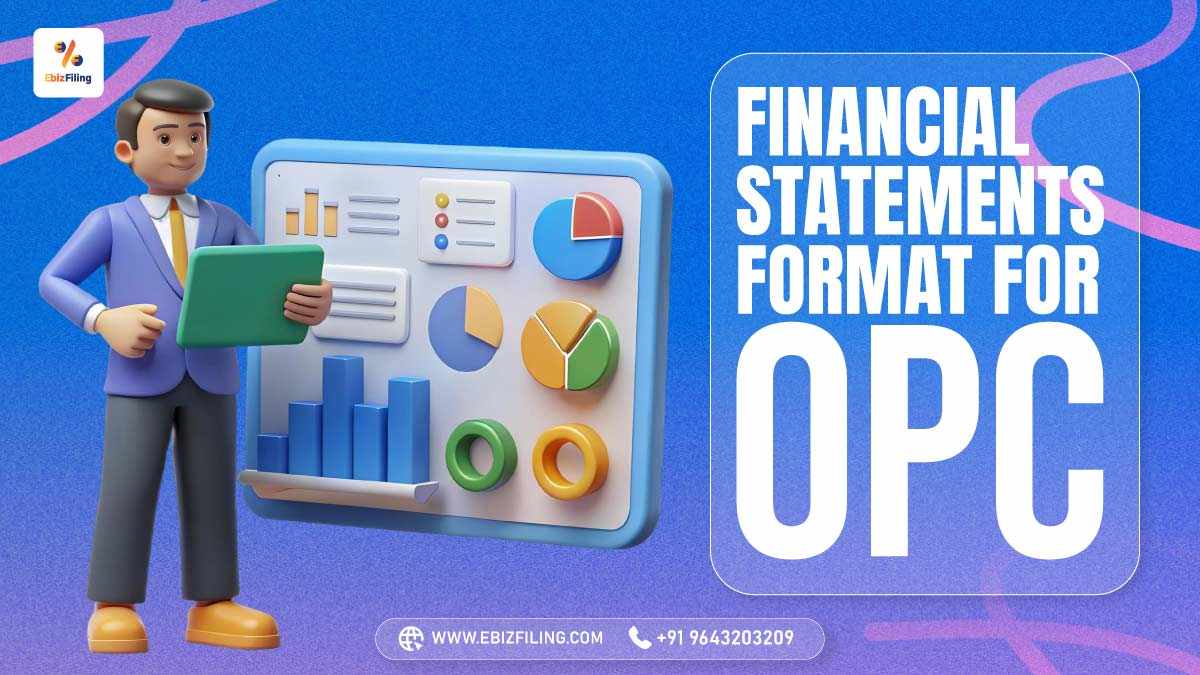Key Points to Consider While Preparing OPC Financial Statements
Preparing financial statements for an OPC might seem straightforward, but there are a few important things to keep in mind:
- Only One Director Signs the Statements: In an OPC, there’s no board of directors. So, the sole director is responsible for approving and signing the financial statements.
- Auditor’s Report is Needed (if applicable):Audit Report is mandatory to get while preparing OPC Financial Statements.
- Filing Must Be Done in Form AOC-4: File the prepared financials with the ROC using Form AOC-4 within 180 days from the end of the financial year.
- Follow Schedule III Format: The format of the statements should align with Schedule III of the Companies Act, 2013, which provides the standard layout for presenting financial information.
- Financial Year is from April to March: Like other companies, OPCs must follow the standard financial year; starting from April 1st to March 31st.
Due Date for Filing OPC Financial Statements
A One Person Company (OPC) must file its financial statements with the Registrar of Companies (ROC) within 180 days from the end of the financial year. Since the financial year ends on 31st March, the company usually files Form AOC-4 by 27th September of the same year.
It’s important to meet this deadline to avoid late fees and penalties. Even if there is no business activity, the OPC must still file its financial statements on time.
How to File Financial Statements for OPC?
Filing financial statements for a One Person Company (OPC) may sound technical, but the process is quite manageable if you follow the right steps. Here’s how it’s done:
- Step 1 – Prepare the financial documents: Start by getting your Balance Sheet, Profit & Loss Statement, and Notes to Accounts ready. If your OPC needs to be audited (based on turnover or capital), make sure you have the Auditor’s Report as well.
- Step 2 – Get them signed: The sole director of the OPC must prepare and then sign the financial statements. If an audit is required, the Chartered Accountant will also sign their portion.
- Step 3 – Fill out Form AOC-4: You must use this main form to submit your financials to the Registrar of Companies (ROC). You can download it from the Ministry of Corporate Affairs (MCA) website.
- Step 4 – Attach the documents: Upload the signed financials, auditor’s report (if applicable), and any other required documents with the form.
- Step 5 – Pay the fees and submit: Pay the filing fee online based on your OPC’s capital. Then, use your digital signature (DSC) to submit the form on the MCA portal.
Conclusion
Filing financial statements is not just a legal formality for a One Person Company (OPC); it’s a key step in staying compliant and maintaining transparency. By following the correct format and meeting the due dates, you can avoid penalties and ensure smooth annual filing. Whether you’re a new business owner or managing an existing OPC, understanding the financial statement format helps you stay on top of your company’s financial health.
Suggested Read :
OPC Compliance After Incorporation
Mandatory Compliance List for OPC











December 17, 2025 By Dhruvi D
OPC Compliance: Annual Filing Notes and Document Checklist with Ebizfiling At Ebizfiling, we help One Person Companies (OPCs) in India meet all MCA annual compliance requirements like AOC-4, MGT-7A, DIR-3 KYC, and DPT-3. Our team tracks deadlines, files forms accurately, […]
November 22, 2025 By Dhruvi D
Why OPC Filing Deadlines Catch Founders Off Guard in India? Introduction OPC filing deadlines in India often catch founders off guard. Strict annual compliance requirements ensure an OPC’s legal status, and missing these deadlines can lead to heavy penalties or […]
September 20, 2025 By Dhruvi D
OPC vs Pvt Ltd Compliance: Who Files Less and Pays Fewer Penalties? Introduction For any entrepreneur, knowing about OPC vs Pvt Ltd Compliance is essential. A Pvt Ltd firm is best for teams looking for growth and finance, whereas OPC […]